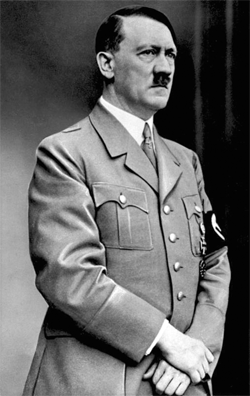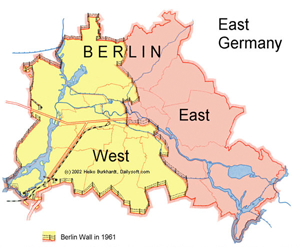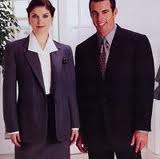
Welcome to our presentation on Germany's business and cultural practices!

Basic Statistics

- Population: 82,282,988 (2010) – most populous country in the European Union.
- Largest economy in Europe
- First world country, ranked 10th in the world by the United Nations' Human Development Index in 2010.
- Size: 357,021 km²
Geography
- "Germany is a federal parliamentary republic of sixteen states."
- Located in west and central Europe
- Major cities included in map: Berlin (capital), Frankfurt, Cologne, Munich, Hamburg, Stuttgart, and Dortmund.
- Most cities in Germany are roughly the same size because of Germany's division of city-states prior to the unity of the nation.
Climate

- Germany has a moderate climate.
- In areas bordering the North Sea, the climate is OCEANIC and weather is warmer on average.
- In areas further east, climate is CONTINENTAL. Here, weather is more extreme (colder in winter, hotter in summer).
Transport

- Urban country = modern and increase technology in terms of transportation.
- Main methods of transportation:
 Automobile (Auto Bahn)
Automobile (Auto Bahn)  Transit (Deustche Bahn)
Transit (Deustche Bahn)  Air Transit
Air Transit Key Natural Resources
- Mining industry
- Largest producer of brown coal and anthracite
- Iron ore, potash, timber, uranium, copper, natural gas, salt, nickel, arable land, and water
History

- German culture began developing before the city-states were united as a country.
 Nationalism in French Revolution (1789-1830)
Nationalism in French Revolution (1789-1830)  Socialist movement during Industrial Revolution (18th-19th century)
Socialist movement during Industrial Revolution (18th-19th century)  Official country in 1871.
Official country in 1871. - 20th century: one of the greatest powers in Europe.
 Loss in WWI; Treaty of Versailles
Loss in WWI; Treaty of Versailles - Great Depression: Election of Adolf Hitler
 Holocaust - "perfect race"
Holocaust - "perfect race"  Reign ended in 1945 with the death of Hitler
Reign ended in 1945 with the death of Hitler 
- Cold War: Split of East and West Germany
 East Germany: communist
East Germany: communist  West Germany: ethnic Germans
West Germany: ethnic Germans - Today, the country has reunited (fall of the Berlin wall) and has learned from their past to fluorish in the increase of culture (technology, innovations, etc.)
Major Religions

- The prominent religions in Germany are:
 Roman Catholicism
Roman Catholicism  Protestantism
Protestantism  Islam
Islam 
Roman Catholicism
- Pope is leader; bishops and cardinals govern; priests partake and lead in mass and church activities.
- Beliefs centered on the Holy Trinity and the Eucharist.
- Roman Catholicism has been financially sustained by Germany's church taxes despite rejection of the Church by German youth.
- Scripture is interpreted, not taken literally.
Protestantism
- Similar beliefs as Catholicism - faith in Jesus Christ - however, mass is celebrated radically different.
- Beliefs centered on the literal meanings of scripture and the Popes.
Islam
- Belief in one, divine god - Allah
- Prophet Muhammad is the messenger of God, according to the Qu'ran
- All actions in a Muslim's life are in coherence with religion: eating, cleaning, and purification.
Germany's Demographics
- Germany is a DEVELOPED COUNTRY.
 GDP: $3.33 Trillion (2009)
GDP: $3.33 Trillion (2009)  Industrialized Nation: Part of the G8 and G4 Nations
Industrialized Nation: Part of the G8 and G4 Nations - Distribution of Population (March 2011):

- Estimated Population Birth Rate for March 2011: -0.208%, to a previous 0.06% in 2010.
- Estimated Population Death Rate for July 2010: 10.92%, to a previous 11% in July 2010.
- Approximate Literacy Rate (Ages 15 and over can read and write as of 2003): 99%
- Gender Split Ratio (number of males for every 1 female):

- Ethnic Makeup:

- Education:
 Primary school lasts from grades 1-4 in Germany (except in Berlin, where it lasts in until grade 6).
Primary school lasts from grades 1-4 in Germany (except in Berlin, where it lasts in until grade 6).  Secondary school lasts from grades 5-13 in Germany (except in Berlin, where it begins in grade 7).
Secondary school lasts from grades 5-13 in Germany (except in Berlin, where it begins in grade 7). Subculture
- Some of the subcultures that exist within the German demographic include skinheads, punk, gothics, hippies, and Nazi rockers.
Politics

- Representative democracy
 Chancellor is head of government (Current: Angela Merkel)
Chancellor is head of government (Current: Angela Merkel)  President is head of state (Current: Christian Wulff)
President is head of state (Current: Christian Wulff) - Dominant Parties
 Christian Democratic Union
Christian Democratic Union  Social Democratic Party of Germany
Social Democratic Party of Germany - The Basic Law is Germany's constitution.
- Germany is a member of:
 NATO
NATO  G8
G8  G4 Nations
G4 Nations  European Union (EU)
European Union (EU) Trading Relationship with Canada
- Currency: The Euro
 Value: 1 Euro = 1.40 Canadian dollars (April 30, 2011)
Value: 1 Euro = 1.40 Canadian dollars (April 30, 2011) - Germany is Canada's sixth largest trading partner as of 2008.
- Total amount in imports from Canada: $3,936,157,965
- Total amount in exports to Canada: $11,272,873,076

Source: BC Stats
Business Meetings and Negotiation Style

Time Perception
- Monochronic
- Germans are very serious about punctuality and planning.

Spatial Perception
- Germans value their own space.
- In line-ups, more lenient toward closer-knit spaces.

Dress & Wardrobe
- Simple, classic, formal, conservative dress
- Men: dark coloured suits
- Women: business suits or conservative dresses
- AVOID: loud, flashy, over-the-top jewellery and dress
Language
- 95% of the population speaks the national language of German.
- The remainder of the population speaks minority languages (Turkish, Danish, etc.).
Guess the English translation of the following ten German words!
Guten Tag
Means hello!
Mein name ist
Means my name is...
Wie Geht's?
Means how are you?
Danke, gut.
Means fine, thanks.
Ja Bitte!
Means yes, please!
Nein, Danke!
Means no thanks!
Ich habe mich verlaufen!
Means I'm lost.
Was kostet das?
Means how much does this cost?
Darf ich mal vorbei?
Means excuse me, in regards to getting by.
Deutschland ist wunderschön!
Means Germany is a wonderful country!
Non-Verbal Communication
- Pointing with pinkie finger, not index finger.
- Counting begins with the thumb, not the index finger.
- Eye contact is seen as polite.
- Smiles are reserved for personal, not business relationships.
Forms of Greeting
- Greetings often address one's achievements.
- Greeting a business person by their first name is considered inappropriate.
- Variations of "you" should be acknowledged.
- Answering the phone stating your last name, rather than saying "hello", is common in Germany.
Business Etiquette

- Greetings are formal, followed by a quick handshake. Being polite and not competing against others is required.
- Only bring imported wine to a host.
- Remain standing until invited to sit down. You may be shown to a particular seat.
- Gifts are immediately opened when they are received.
- Flowers
 Yellow roses or tea roses are acceptable.
Yellow roses or tea roses are acceptable.  Red roses or tea roses are not to be given in a business situation; they symbolize romance.
Red roses or tea roses are not to be given in a business situation; they symbolize romance.  Carnations are not to be given in a business situation; they symbolize mourning.
Carnations are not to be given in a business situation; they symbolize mourning.  Lilies or chrysanthemums are not to be given in a business situation; they are traditionally used at funerals.
Lilies or chrysanthemums are not to be given in a business situation; they are traditionally used at funerals. Additional Information: How Germans Eat

Breakfast
- Prefer light breakfasts
- Light foods - toast, meat slices, cheese - during the working week
- Heavier foods - sausages, bread rolls, eggs, cereals - during the weekend
Lunch
- The main meal of the day
- Eaten at mid-day (approximately 2:00pm)
- Servings include a light soup, a light main dish, and a dessert.
Tea Time: Kaffee
- Occurs in between lunch and dinner
- Tea or coffee, paired with cookies or cake, are common at tea time.
Dinner
- Leftovers from lunch are often served during this meal.
- Resturants tend to offer a variety of sausages and cheese for dinner.
- Barbecuing is common on special occassions.
Oktoberfest

- The world's largest beer festival; spans for 16 days.
- Began in 1810 to celebrate the marriage of Bavarian Crown Prince Ludwig to the Saxon-Hildburghausen Princess Therese.
- This year, Oktoberfest begins September 17th.
The Beer
- Märzen - 6% alcohol, darker than most beers, lagered for 30 days.
- 1.5 gallons of beer is consumed each year at Oktoberfest.

Sources & Credit
- Wikipedia: Germany
- German Culture: Climate
- Google: German Population
- Just Germany: Basic Facts about Germany
- Germany's Natural Resources
- Index Mundi: Germany's Natural Resources
- Local Histories: Germany
- The Political Structure of Germany
- Government of Canada's German Fact Sheet
- BC Stats: German Imports & Exports to Canada
- How Germans Eat
- Oktoberfest
- German Religions (Translated)
- German Religions
- Religion in Germany
- German Culture: Religion in Germany
- About Roman Catholicism
- My German City: German Religion
- Religious Graph in Germany
- German Demographics
- German Negotiations (PDF)
- Doing Business in Germany
- Communicaid: German Business
- Germany
- German Business Etiquette
- German Non-Verbal Communication
- German Business Meetings
- Population German Sayings
- English to German
- Non-Verbal Communication Styles (Germany)
- German Business Etiquette (2)
- Languages Spoken in Germany [BBC]
This website is a product of the imaginations of Monica Grasmann and Erica Lenti. All content is sourced in links to the left of this paragraph.
This website was created for Mr. Calamia's Grade 12 International Business course at Marshall McLuhan CSS.
Created May 2011 by Erica Lenti (and Monica Grasmann).

